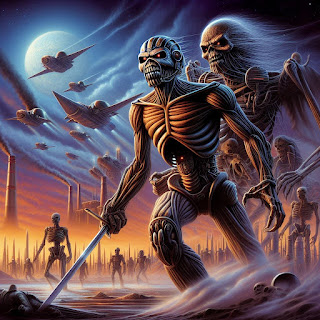In the quaint town of Millbourne, nestled amidst rolling hills and whispering forests, there stood a peculiar cottage. Its timeworn facade bore the marks of age, its windows fogged with the passage of time. Within its walls dwelled a reclusive inventor known only as Professor Eldridge.
One misty evening, a young traveler by the name of Thomas stumbled upon the cottage while seeking shelter from the encroaching darkness. Knocking timidly upon the weathered door, he was met with the creaking of hinges and the sight of the enigmatic professor.
"Good evening, sir," Thomas greeted, his voice tinged with uncertainty. "Might I trouble you for a night's lodging? The fog has obscured my path, and I fear I shall lose my way."
The professor regarded him with keen interest, his eyes gleaming with a spark of curiosity. "Come in, young man," he replied, his voice as aged as the ancient books lining the shelves. "You are welcome to rest here for the night. But be warned, my pursuits may not be to everyone's liking."
Thomas entered cautiously, his gaze drawn to the myriad contraptions littering the cluttered workshop. Steam hissed from pipes, and gears whirred as if possessed by unseen hands. Yet amidst the chaos, there lay an air of brilliance and innovation.
As the night wore on, Thomas found himself engrossed in conversation with the eccentric inventor, their discourse spanning the realms of science and imagination.
"And what is it that you seek to accomplish, Professor?" Thomas inquired, his curiosity piqued by the mysteries shrouding their surroundings.
The professor smiled knowingly, his gaze fixed upon the stars twinkling beyond the windowpane. "I seek to unravel the secrets of the universe, to unlock the hidden wonders that lie just beyond our grasp," he replied, his voice tinged with fervor. "For in the pursuit of knowledge, lies the key to understanding our place in this vast cosmos."
Their dialogue continued long into the night, delving into realms both fantastical and profound. And as the first light of dawn painted the sky in hues of gold and crimson, Thomas departed the cottage with a newfound sense of wonder and enlightenment.
For in the heart of Millbourne, amidst the fog and the shadows, a bond had been forged between two souls bound by a shared thirst for discovery. And though their paths diverged, the echoes of their conversation lingered on, a testament to the timeless power of curiosity and imagination.


